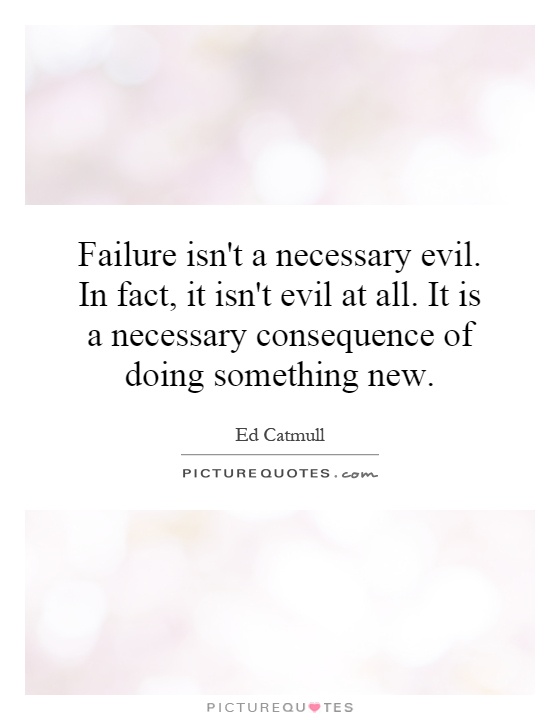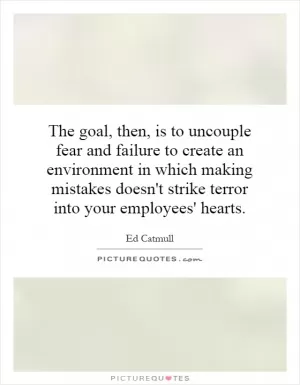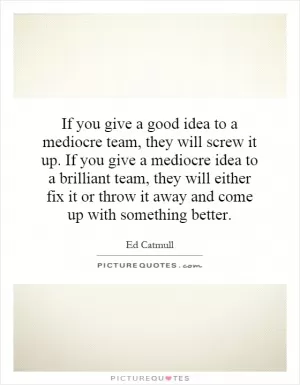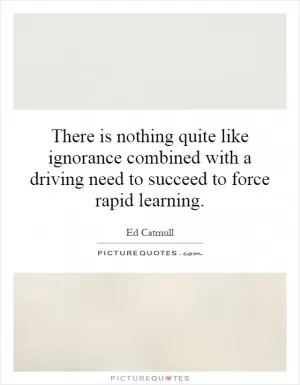Failure isn't a necessary evil. In fact, it isn't evil at all. It is a necessary consequence of doing something new

Failure isn't a necessary evil. In fact, it isn't evil at all. It is a necessary consequence of doing something new
Ed Catmull, the co-founder of Pixar Animation Studios and former president of Walt Disney Animation Studios, is a firm believer in the idea that failure is not only inevitable but also essential for growth and innovation. In his book, "Creativity, Inc.: Overcoming the Unseen Forces That Stand in the Way of True Inspiration," Catmull argues that failure is not a necessary evil, but rather a necessary consequence of pushing boundaries and trying new things.Catmull's own career is a testament to the power of embracing failure as a learning opportunity. Throughout his time at Pixar, he has faced numerous setbacks and challenges, from technical glitches in the early days of computer animation to creative disagreements with colleagues. However, instead of viewing these failures as roadblocks, Catmull saw them as opportunities to learn, adapt, and ultimately improve.
One of the key principles that Catmull emphasizes is the importance of creating a culture that encourages experimentation and risk-taking. He believes that in order to foster creativity and innovation, individuals must feel empowered to take risks and make mistakes without fear of judgment or retribution. By creating a safe space for failure, Catmull argues that organizations can unlock their full creative potential and achieve breakthrough results.
In the context of Pixar, Catmull's philosophy has been instrumental in the studio's success. By embracing failure as a natural part of the creative process, Pixar has been able to produce groundbreaking films that have captivated audiences around the world. From "Toy Story" to "Finding Nemo" to "Inside Out," Pixar's films are a testament to the power of embracing failure and using it as a stepping stone to success.












 Friendship Quotes
Friendship Quotes Love Quotes
Love Quotes Life Quotes
Life Quotes Funny Quotes
Funny Quotes Motivational Quotes
Motivational Quotes Inspirational Quotes
Inspirational Quotes